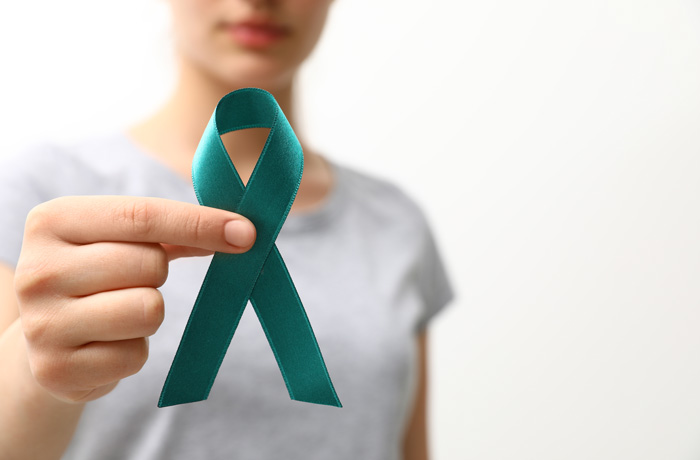
How much do you know about protecting yourself from cervical cancer? More than 14,000 women in the United States are diagnosed with cervical cancer each year. The good news is cervical cancer is easy to catch through screening and is very treatable when caught early.
January is Cervical Health Awareness Month, and a good reminder to make sure you’re doing everything you can to take charge of your cervical health.
Screening success for cervical cancer.
“Cervical cancer and precancer are very easy to catch through screening procedures,” says Kevin Brader, MD, gynecologic oncologist at Holland Hospital Women’s Specialty Care.
Cervical cancer is easy to catch through screening because it has a precancerous state – meaning it will likely develop into cancer if left untreated – for up to seven years before the cancer develops. “That’s a big window of opportunity to catch it,” says Dr. Brader.
Patients should undergo regular screenings to identify any precancerous cell changes on the cervix. There are two types of screenings, both of which are non-invasive and accurate if done regularly. The first is a Pap smear, which looks for precancerous cell changes on the cervix. The second is a human papillomavirus (HPV) test. HPV can cause those precancerous cell changes on the cervix.
Women 25-65 years of age should either request a Pap test every three years or an HPV test every five years. Both screenings can be performed at your doctor’s office or a clinic. To schedule a screening at Holland Hospital Women’s Specialty Care, call (616) 748-5785.
Cervical cancer and HPV.
In addition to regular screenings, the most important thing you can do to prevent cervical cancer is get the HPV vaccine. HPV is transmitted through sexual contact, and while it can be cleared by the body’s immune system, it doesn’t always go away and can sometimes even go dormant in the host for years. “Anyone that is sexually active or has been sexually active is at risk,” said Dr. Brader. It’s important to note that condoms can reduce the risk of transmission.
The CDC recommends the HPV vaccine for everyone—both males and females—up through the age of 26 if not already vaccinated.
Where can I learn more?
The experts at Holland Hospital Women’s Specialty Care understand women have unique health needs that change across their lifespan and offer personalized care to meet your needs at every age and stage of life. To schedule a screening appointment, or a consult with Dr. Brader, call (616) 748-5785.
